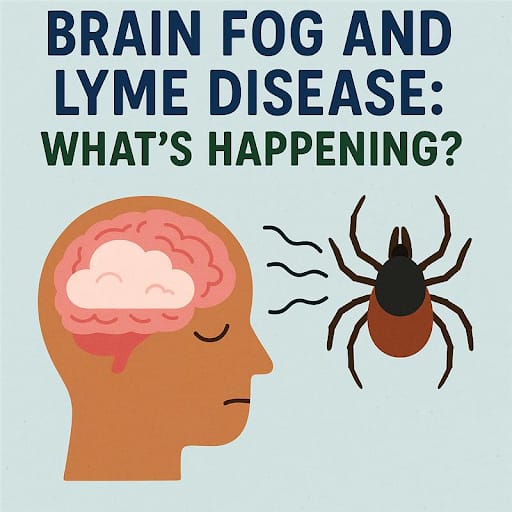
What is Brain Fog? Brain fog is a term which is associated with cognitive impairment that affects the individual’s ability to think and focus. People find it difficult to perform usual tasks, and listen to conversations. There is a chance of occurrence of brain fog in people with lyme’s disease.
When the condition is untreated, it can cause complications in the nervous system, musculoskeletal system, and cardiovascular system. The inflammation spreads to the nervous system when the bacteria reaches the brain.
Causes of brain fog in lyme’s disease
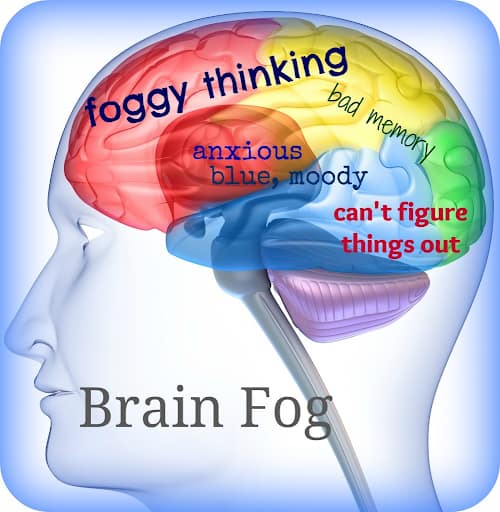
- Brain fog is a common symptom experienced by individuals who are suffering from Lyme disease.
- This condition results from bacteria called Borrelia burgdorferi, which causes cognitive imbalance such as bad memory, thinking slow, difficulty with memory, and impaired motor control.
- This bacteria crosses the blood brain barrier and leads to inflammation in the central nervous system.
Managing Brain fog includes:
- Antibiotic treatments
- Anti-inflammatory Medicines
- Nutritional supplements
- Dietary changes
- Proper Hydration
- Rest and Preventing Stress
What are the neurological symptoms of Lyme disease?
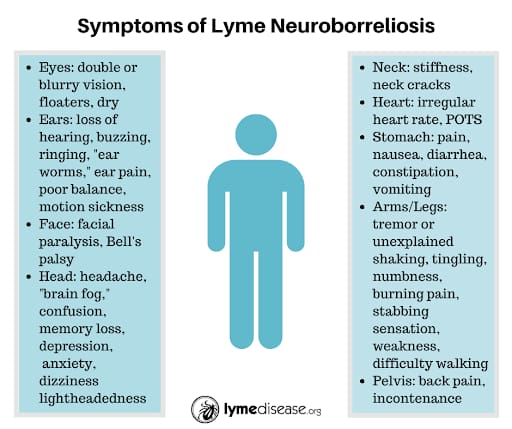
Common neurological symptoms can include:
- Brain fog and cognitive imbalance which leads to memory loss, and problems in concentration.
- Facial palsy is drooping and weak on both sides of the face.
- Peripheral neuropathy includes tingling and burning sensations.
- Headaches
- Disturbance in sleep are common pattern
- Mood disorders like anxiety, depression, and irritation
- Dysfunction of motor leads to difficulty with balance
- Visual disturbance
Diagnosis of brain fog:
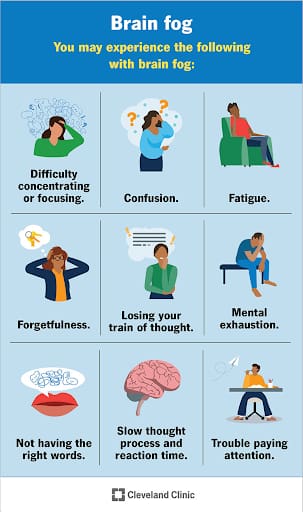
Cognitive impairment caused by Lyme disease like memory loss, concentration issue, and mental fatigue, have been challenging to diagnose because of the subtle nature of symptoms and lack of specific biomarkers.
Advancement in Imaging :
According to John Hopkins School of Medicine, they have utilize advanced imaging techniques, which includes :
- PET (positron emission tomography) scans
- fMRI (functional magnetic resonance imaging)
- DTI (diffusion tensor imaging)
Clinical Impact :
- The ability to visualize changes in the brain due to Lyme disease through advanced imaging modalities is a step forward in validating patient reported symptoms.
- It allows professionals to proceed beyond subjective assessment.
- This considers evidence when diagnosing and managing Lyme related traits.
Is it possible to reverse the mental cloudiness from Lyme’s disease?
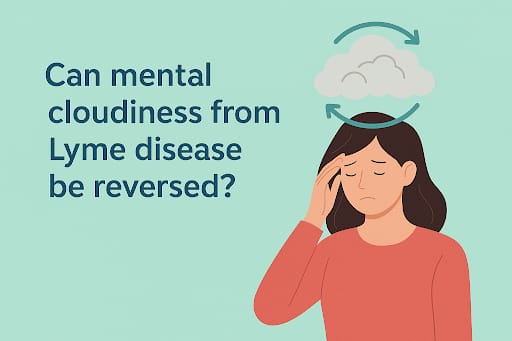
- Mental cloudiness can be reversed through treatment plans and dietary modifications. Once the cause of infection is detected, antibiotics can be prescribed accordingly.
- Incorporating foods which are healthy to your brain can improve concentration and memory. Improvement in clinical symptoms can be observed after a few months.
- Approaches like mindfulness therapy can provide a huge relief. Mindfulness is a lifestyle that focuses fully on the present moment without offering judgement or resistance.
How does cognitive impairment affect daily life?

Cognitive impairment caused by Lyme disease, specifically in its chronic stages can affect daily routine.
This impact can hinder normal ability to perform daily task and engage in social interactions:
- Memory issue
- Difficulties in concentration
- Problem in processing speed
These challenges are complemented by emotional signs like irritation, depression, anxiety and complicates regular functioning.
These symptoms, even after treatment, require a comprehensive management plan that can focus on both the conditions – neurological and psychological perspective of disease.
Management of cognitive symptoms of Lyme’s Illness?

To manage these cognitive impairments requires a multiple approach that addresses both underlying conditions and neurological inflammation caused by bacteria Borrelia burgdorferi
- Antibiotic Treatment : Specifically for an individual’s need and exact stage of the disease, antibiotic treatment suggested by a healthcare professional.
- Nutritional Support : Diet plays a major role in supporting health of the brain and reducing inflammation. Anti-inflammatory foods like leafy greens, fatty fish, and nuts can give nourishment to the brain.
- Cognitive Retention Therapy : This therapy can improve memory, concentration, and problem solving skills and involves structured exercises to increase cognitive function.
- Neurofeedback Treatment : This is a non-invasive therapy that trains people to regulate brain activity.
Managing stress and rest : Sufficient sleep and managing stress are important components of cognitive health because disturbance in sleep and anxiety can worsen the symptoms.
Summing Up..
Summing up with brain fog is a common difficult symptom of Lyme disease caused by bacteria Borrelia burgdorferi that leads to inflammation in the brain. Early detection can multiple therapies approach which include antibiotics, nutritional supplements, and anti-inflammatory medications are important in managing cognitive health.
So, with right care and therapy, improvements can be made in reducing brain fog and restoring cognitive function.
Hence, treating infection and neurological effects is the main key to a smooth recovery.
References
- CDC. 2024. “Clinical Care and Treatment of Neurologic Lyme Disease.” Lyme Disease. May 20, 2024. Availabe from.
- Writer. 2020. “Lyme Brain: The Science and the Experience.” Global Lyme Alliance.org. 2020. Available from.
- dleland. 2023. “Advanced Imaging Shows Lyme-Related Brain Fog Is Real.” LymeDisease.org. March 29, 2023. Available from.
- Writer. 2021. “What Improves Lyme Disease Cognitive Symptoms?” Global Lyme Alliance.org. 2021. https://www.globallymealliance.org/blog/cognitive-function.Writer. 2019. “Dealing with Brain Fog: Brain Fog and Lyme Disease.” Global Lyme Alliance.org. 2019. Available from.


